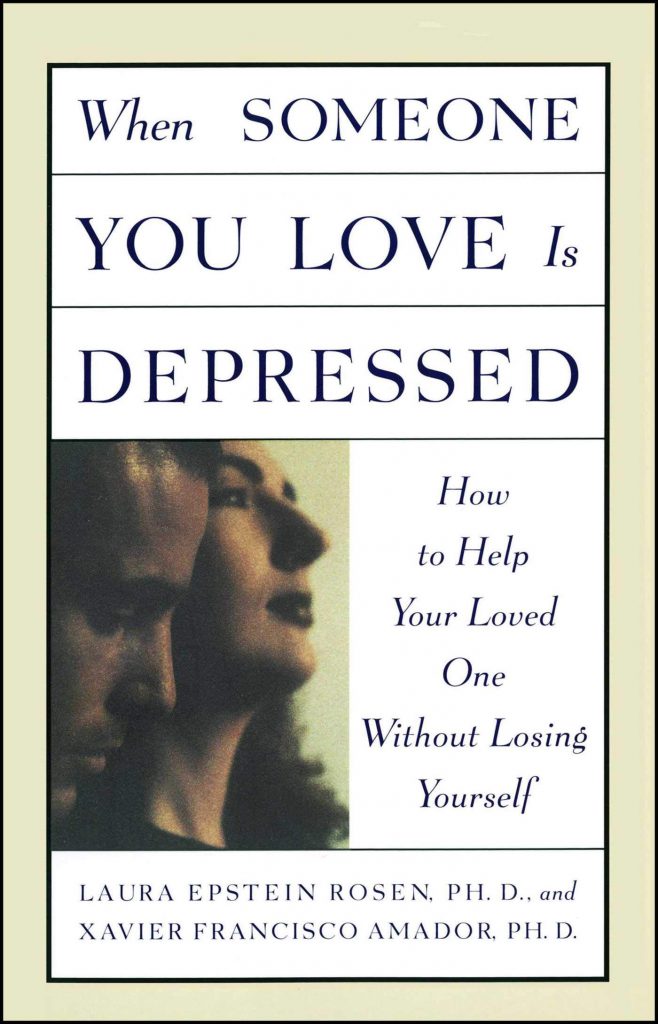When Someone You Love is Depressed: How to Help Your Loved One Without Losing Yourself

When Someone You Love is Depressed: How to Help Your Loved One Without Losing Yourself
by Laura Epstein Rosen and Xavier Francisco Amador
Reviewed by The Summit Staff
Depression can be contagious. It can affect not only the person who’s depressed, but everyone else around. These effects may vary, but most family members and friends report feeling an uncomfortable blend of feelings in dealing with a depressed person. Laura Epstein Rosen, Ph.D., and Xavier Francisco Amador, Ph.D., in their book When Someone You Love Is Depressed put forth the thesis that depression may be a factor in many troubled relationships in marriage, between parent and child, sibling and sibling, and between friends. Since the symptoms of depression can vary significantly on the basis of gender, age, coping skills and other highly subjective factors, it is easy to mistake a loved one’s behavior and take it to mean something of a more personal nature. When someone withdraws and refuses help, or when someone appears to be sullen and angry for no apparent or significant reason, it can be hard not to take it personally. In the face of a seemingly constant barrage of negativity coming from the depressed person, it can be hard to remain positive.
The book includes a chapter on how a loved one’s depression will affect us. Some family members or friends will feel frustrated. Others will themselves become somewhat depressed and feel down. Yet others will feel that they have become a target of opportunity, for the depressed person to take his or her frustrations out on. The advice given by Rosen and Amador is not to feel guilty if a sense of frustration creeps in or for a wish to be away from the now “toxic” influence of depression. The secret is to manage the stress caused by the loved one’s depression and to figure out how to try and make things better.
Another chapter deals with how to recognize if someone we love is depressed. Here, the authors make it plain that it is important, even critical, to obtain a reliable diagnosis from a trained professional. They provide a checklist that makes it easier not to overlook the most significant (and not so obvious) signs of clinical depression that must be verified by a mental health clinician. The recommendation is to make informed choices, carefully evaluate the help that is available to treat depression, and to convince a loved one to seek appropriate treatment.
The authors also provide information on how to communicate more effectively with a person who suffers from depression, without making him or her feel judged or defensive. One of the most important communication challenges is convincing someone to accept the idea of a diagnosis and that treatment is not only advisable but necessary. This is perhaps the most insidious aspect of depression, as it prevents the sufferer from having the motivation to take action or to have the hope that anything can be done to change the situation.
The purchase of this recommended book using the link above will contribute to the funding of The Summit Society and benefits our ministry of care for those in need.



